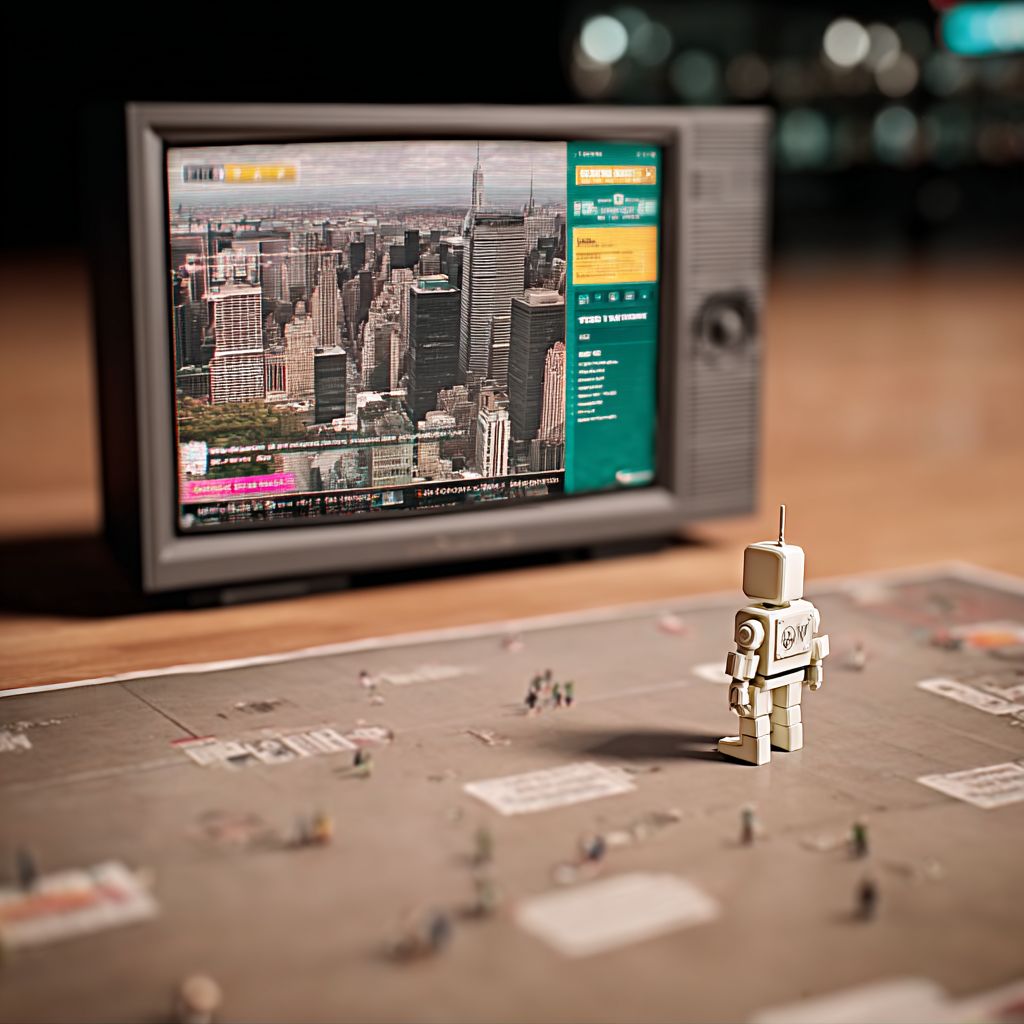- Enterprise AI Daily
- Posts
- Plastic Gets Smarter, Politics Gets Stranger, and AI Gets Clearance
Plastic Gets Smarter, Politics Gets Stranger, and AI Gets Clearance
From AI-designed polymers to AI-driven Prime Ministers, here’s what enterprise leaders need to know about this week’s tech shakeups

Today’s drop is packed tighter than a heat-sealed polymer. We're diving into how AI is revolutionizing material science (and what that means for real-world manufacturing), why Sweden’s PM is catching flak for outsourcing his brain to ChatGPT, and what it means now that OpenAI, Google, and Anthropic just got the government’s green light.
This is one of those days where the line between science fiction and boardroom strategy is razor-thin. Let’s get into it.
How A Small Crypto Investment Could Fund Your Retirement
Most people think you need thousands to profit from crypto.
But this free book exposes how even small investments could transform into life-changing wealth using 3 specific strategies.
As markets recover, this may be your last chance to get positioned before prices potentially soar to unprecedented levels.
AI is designing better plastics. Here’s why it matters for more than Tupperware.
MIT revealed a new AI tool that can engineer super-tough plastics with minimal human guesswork. The system, called PolyGA, uses generative AI to simulate thousands of polymer structures and predict how they’ll behave, before a single drop of chemical hits the lab bench.
What we’re seeing unfold is an industrial transformation with ripple effects across R&D, supply chains, product design, and sustainability strategy.
Here Are 5 Reasons This Might Be a Watershed Moment for Enterprise AI:
1. It’s proof that AI can innovate in the physical world.
Most enterprise AI success stories live in the digital realm: forecasting demand, summarizing reports, generating images. But PolyGA shows that AI can help invent real-world materials. That means:
AI isn’t just optimizing what already exists, it’s now designing what’s next.
Companies can train models to co-create physical products with desired properties: harder, stronger, more flexible, heat-resistant, recyclable, etc.
The AI isn't limited to analysis, it’s synthesizing structure + function to guide experimentation. That’s next-level generative design.
2. It upends how materials R&D is done.
Traditional materials development takes years of trial-and-error in wet labs and wind tunnels. PolyGA compresses that to weeks, thanks to:
A closed-loop feedback system between generative agents and simulation engines
The ability to discard low-performing candidates instantly, before they hit production
Automated discovery of material structures humans might never think to test
That means cheaper R&D cycles, less lab waste, faster regulatory submissions, and accelerated product timelines.
3. It sets the stage for scalable AI-first innovation pipelines.
PolyGA is more a blueprint for:
Cross-functional model orchestration (gen AI + physics simulation + predictive modeling)
Autonomous collaboration between AI “agents” without constant human handholding
A closed-loop system where outcomes feed back into model improvement
This mirrors what enterprise AI stacks need to evolve into: orchestrated, automated, intelligent workflows that improve with use.
4. It has sustainability and supply chain implications.
AI-designed plastics could:
Use fewer petroleum-based inputs
Be engineered for recyclability from the start
Enable high-performance materials with lower carbon footprints
In a world under ESG pressure and volatile resource markets, that’s an enterprise differentiator.
5. It’s a signal for all R&D-heavy industries.
If AI can design better polymers, it can (soon, I’m sure) design:
Custom alloys for aerospace
More effective drugs for pharma
Adaptive fabrics for wearables
Biodegradable packaging for CPG
Strategic takeaway: Start mapping where AI-first design can replace manual trial cycles in your org. And if your materials team isn’t talking to your AI team yet, I’d make that meeting happen.

Enterprise AI Daily // Created with Midjourney
News Roundup
OpenAI, Google, and Anthropic win U.S. approval for civilian AI contracts
The Department of Commerce just gave three AI giants official clearance to sell civilian AI services to federal agencies. It’s a signal that the U.S. is doubling down on public-private AI partnerships, and an early domino for the enterprise procurement race.
Read more →
OpenAI’s enterprise push hits the New York Times
The NY Times dove into OpenAI’s evolving business model, and how the company is courting C-suites with enterprise tools, not just viral demos. Key quote: “The real revenue is in making AI boring, reliable, and invisible.” Sound familiar?
Read more →
Swedish PM sparks debate on AI and political leadership
Kristersson’s ChatGPT usage is now a national controversy. Critics call it reckless. Supporters say it’s efficient.
Read more →
TL;DR:
MIT’s new AI can invent better plastics in weeks, not years, reshaping R&D across industries.
Sweden’s PM admitted he’s using ChatGPT at work, sparking outrage and some very relevant enterprise questions.
OpenAI, Google, and Anthropic got official approval for civilian U.S. government AI contracts.
OpenAI’s pivot to “boring, enterprise-grade” AI is making headlines for all the right reasons.
Generative agents are the next big thing in complex AI systems.
Your move, innovators. Whether you’re rethinking product pipelines or rewriting your board memos, this week proves one thing: AI is changing both the tools AND the rules.
Stay sharp,
Cat Valverde
Founder, Enterprise AI Solutions
Navigating Tomorrow’s Tech Landscape Together
Let’s get a read on your readiness:How’s your enterprise approaching AI decision-making? |


